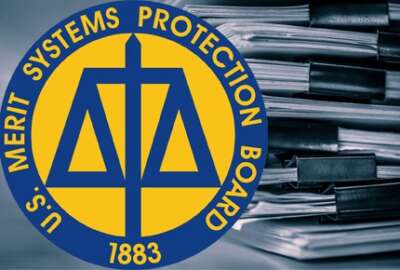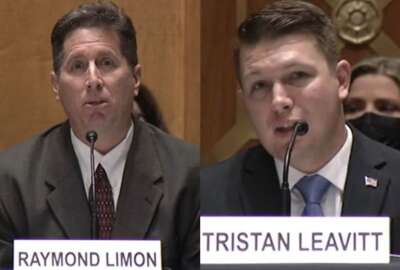
The MSPB grinds through that haystack of an appeals backlog
Agencies can automate a lot, but not the process of deciding who's right in workplace prohibited practices.
One thing about covering the federal government: You learn something new every day.
Case in point: I always assumed (spare me the jokey meaning of “assume”) that, when deciding an appeal, members of the Merit Systems Protection Board sat around a table and discussed it, each having the same paperwork. An hour later, maybe, the ashtray filled with stubbed out Marlboros, they’d vote yes or no on what the administrative judge had decided.
My recent interview with MSPB member Tristan Leavitt set me straight. Each member reviews cases separately, communicating through chief counsels if necessary, or through written comments. In fact, Leavitt said, if members want to meet, “you have to actually give public notice of a meeting.”
Leavitt works remotely from a distant city, enabled by the online capabilities the MSPB staff engineered. Among the tools, an online voting app Leavitt described as fantastic.
When you look at the volume of work, you can see where long meetings would make an already-deliberative process even slower. The MSPB’s 65 judges collectively handle about 5,000 cases of workplace prohibited practices a year. About 1,000 of the judges’ decisions are appealed to the Board, either by the agency or the employee. During the quorumless years, Leavitt said, appeals dropped to 600 a year. He speculates that fewer people filed appeals knowing that, without a Senate-confirmed Board in place, appeals would take to infinity.
Regardless, between early 2019, when Mark Robbins, the last member, left, and March of this year, when Leavitt and Raymond Limon were sworn in, the appeals backlog ballooned to 3,643. The chairman, Kathy Harris, received her Senate confirmation in June.
That’s a lot of careers on hold. As I noted in an earlier column, sometimes the wheels turn so slowly that people die waiting.
On the other hand, most of the appeals are routine, legally-speaking. The MSPB calls these “non precedential.” They don’t break new and therefore arcane legal ground. Staff had written draft decisions for all the cases, in anticipation of a Board actually coming into existence. Leavitt said the initial pace of chewing through the backlog was slow, because the Board wanted to get through the thorny precedential cases first.
Bottom line: Limon and Leavitt were able to resolve 73 cases per month, Leavitt said, reaching 511 so far. Last month, the full board picked up the monthly pace to 96 cases. He thinks they’ll be able to maintain a rate of roughly 1,000 per year. He guesses the Board will work through the backlog in another two to three years. He noted, new appeals continue to come in. The funnel, opened at the bottom, is still getting filled from the top.
I’ve personally read a few MSPB cases. Maybe if gets easier the more you do it, but I’ve found that nothing legalistic lends itself to skimming or speed-reading. Woody Allen once said that, after taking a speed-reading course, he read War and Peace in 20 minutes, adding, “It’s about Russia.”
In the case of the MSPB, it’s about justice and fairness for federal employees and their agencies. So it takes as long as it takes.
Copyright © 2025 Federal News Network. All rights reserved. This website is not intended for users located within the European Economic Area.
Tom Temin is host of the Federal Drive and has been providing insight on federal technology and management issues for more than 30 years.
Follow @tteminWFED






